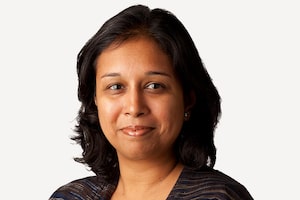Black and Indigenous students at the Peel District School Board will be automatically accepted into specialty programs, as long as they meet the admission criteria and without having to wait for a random selection process.
Faced with continuing criticism of its failures to address issues of equity and systemic anti-Black racism in its schools, Peel’s interim education director told trustees on Tuesday evening that giving access to groups that are underrepresented in programs, such as arts and technology, strings music and the International Baccalaureate, is a “necessary action.”
“They have a right to be there. If our random selection process was working well and we were encouraging students from these identities to apply, we wouldn’t need this step,” Colleen Russell-Rawlins said in an interview earlier on Tuesday.
There are roughly 2,200 spots in so-called regional learning choices programs at the high-school level, and another 800 for elementary students. The board’s data showed there are fewer than 10 Black elementary students attending specialty programs, and that Black high-school students represent the lowest of all racial groups in programs such as the International Baccalaureate and science and technology.
There was insufficient data about Indigenous student representation in these programs given the small number who self-identified. South Asian students represent the highest of all racial groups in specialty programs.
Ms. Russell-Rawlins acknowledged there are barriers to accessing specialty programs, including program fees and transportation. But she said many students are also unaware of these programs, or if they inquire, might be discouraged from applying. The board, she said, will review the specialty programs through an anti-racism and anti-oppression lens.
“Families and students have the right to expect that when a systemic inequity is raised and we know about it ... we respond,” she said. “For Black, African and Caribbean and Indigenous students, who need to know that I see them and that I understand some of the experiences that they are having in the world, and in education, and in our schools, it’s even more important for me to act in a way that supports their educational outcomes.”
The Ontario government issued a number of directives to the Peel board to address issues of governance, equity and racism that were outlined in a provincial review done late last year. The board failed to comply, and Education Minister Stephen Lecce sent in a supervisor.
For months, parents, students and community members in the region west of Toronto attended board meetings and demanded action on racism in schools. The change to the specialty programs is meant to address one of the provincial directives that focuses on eliminating disparities in student achievement.
Danielle Dowdy, a parent in Brampton, Ont., said the change will influence the decisions she makes for her young children. “Absolutely this becomes a pathway choice for my children down the road,” she said, adding the change needs to be communicated to parents, and educators need to identify students for these programs.
Ms. Dowdy is a parent representative who advises the board on its action plan to support Black students. She said Black students, in particular, are marginalized and overrepresented in the hands-on applied stream in high school, as opposed to specialty programs or the academic track.
She said the change to the board’s approach in ensuring that underrepresented students have access to specialty programs is an “important step forward.” This was systemic discrimination, and the system needed to put in place “corrective measures,” she said.
“It’s an aggressive approach and it needs to be aggressive, because the gap is so significant,” Ms. Dowdy said. “You’re talking about structural and systemic inequalities. You do have to get aggressive sometimes when you’re trying to remedy a situation.”
Carl James, a professor of education at York University in Toronto, said the change in how specific groups are admitted to the specialty programs is a “useful signal” to decision-makers to pay attention to the academic achievements of their students.
However, he said it’s not enough just to change the admittance criteria, but rather the culture and the material in these programs need to reflect the changes. “Children do not want to be an experiment or do not want to feel that they’re not meeting the expectations,” Prof. James said.
“I welcome this opportunity that Peel is [providing]. But they cannot do that independent of looking at the curriculum of the program, the materials of the program. All these things about the programs must also be assessed,” he added. “We don’t want these children to fail in that process.”
Our Morning Update and Evening Update newsletters are written by Globe editors, giving you a concise summary of the day’s most important headlines. Sign up today.
 Caroline Alphonso
Caroline Alphonso